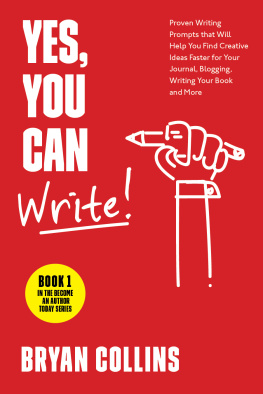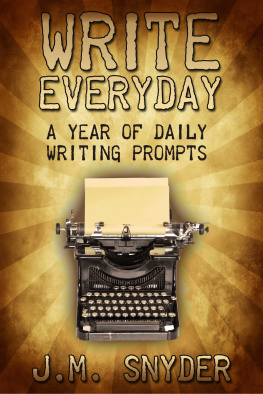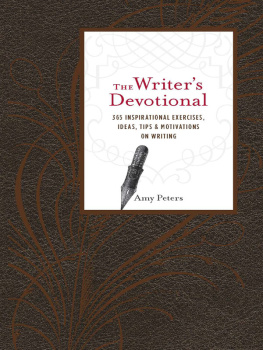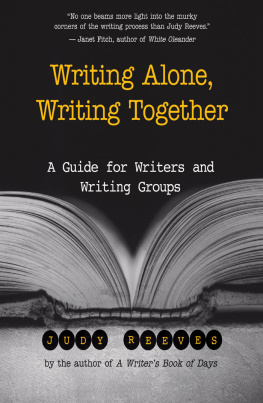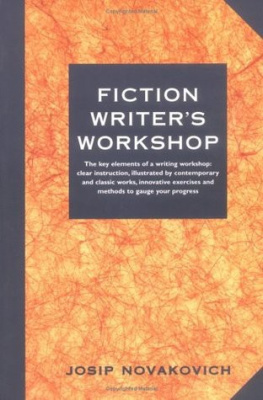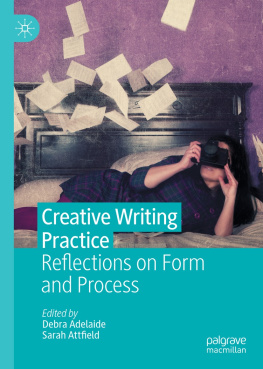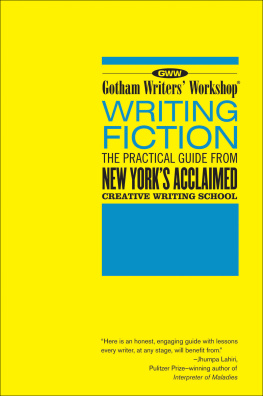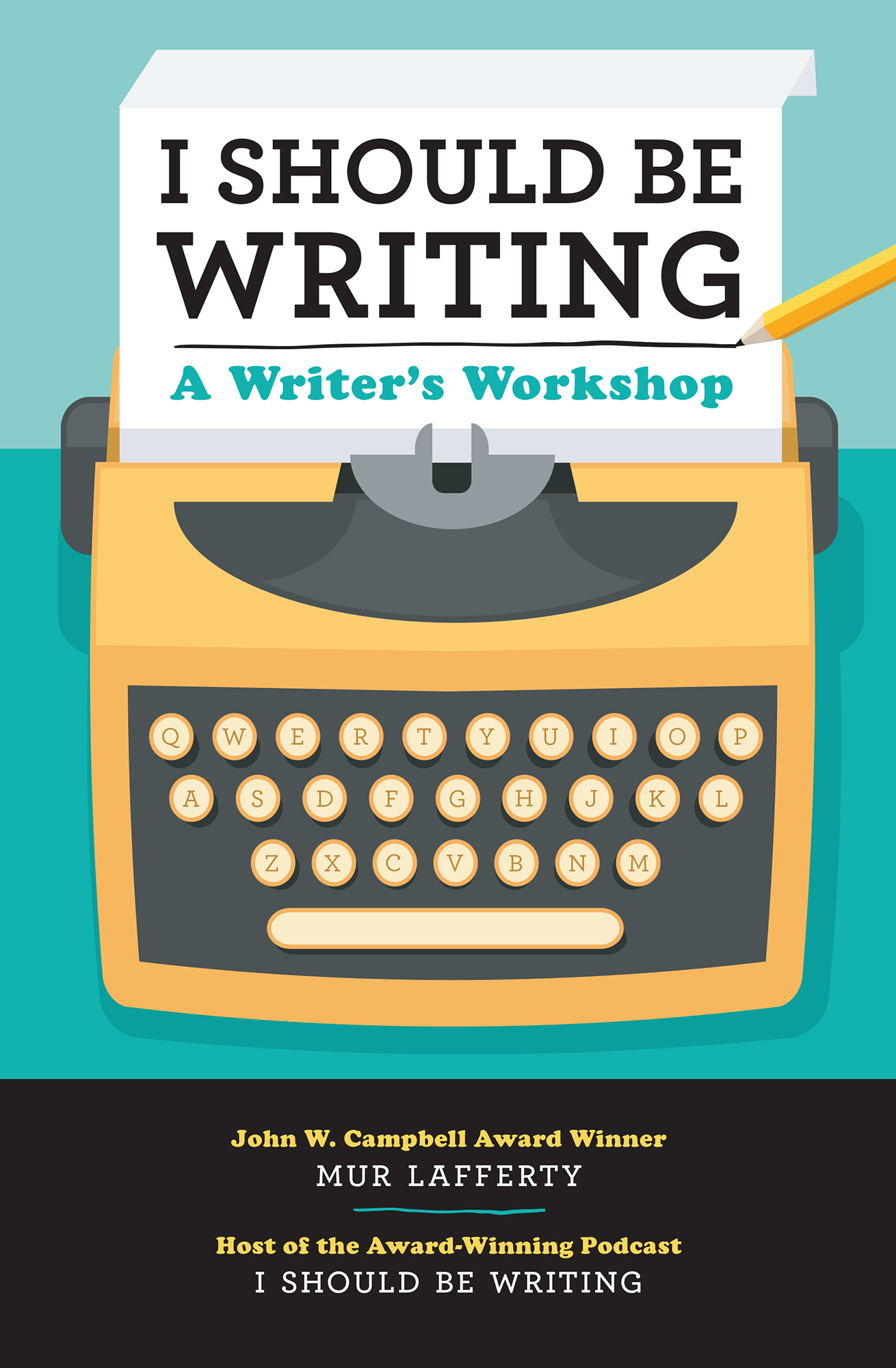I SHOULD BE WRITING
A WRITERS WORKSHOP
Mur Lafferty


Text 2017 by Mary Lafferty
Illustrations Shutterstock
First published in 2017 by Rock Point, an imprint of The Quarto Group,
142 West 36th Street, 4th Floor, New York, NY 10018, USA
T (212) 779-4972 F (212) 779-6058 www.QuartoKnows.com
All rights reserved. No part of this book may be reproduced in any form without written permission of the copyright owners. All images in this book have been reproduced with the knowledge and prior consent of the artists concerned, and no responsibility is accepted by producer, publisher, or printer for any infringement of copyright or otherwise, arising from the contents of this publication. Every effort has been made to ensure that credits accurately comply with information supplied. We apologize for any inaccuracies that may have occurred and will resolve inaccurate or missing information in a subsequent reprinting of the book.
Rock Point titles are also available at discount for retail, wholesale, promotional, and bulk purchase. For details, contact the Special Sales Manager by email at or by mail at The Quarto Group, Attn: Special Sales Manager, 401 Second Avenue North, Suite 310, Minneapolis, MN 55401, USA.
Digital edition: 978-1-63106-563-7
Softcover edition: 978-1-63106-365-7
Editorial Director: Rage Kindelsperger
Creative Director: Merideth Harte
Managing Editor: Erin Canning
Editorial Project Manager: Chris Krovatin
Cover and Interior Design: Jen Cogliantry
This book provides general information on writing method. These are general suggestions and not presented as hard facts for which the author or Quarto can be held legally responsible for disseminating.
For Jennifer Greer Brady and Richard Dansky, both of whom wouldnt let me give up at different times in my life.
And to my podcast listeners, without whom this wouldnt have happened.
Introduction
W hen I was a child, I wrote a bunch of stories and my teacher stapled them together and wrote STORIES on the cover. A few years later, I started my first book. It starred all of my friends as characters who each had our own different colored unicorn to ride as we fought evil. In a fit of writerly rage, I threw it away into the trash can. My best friend Jennifer rescued it.
Incidentally, Stephen King has a similar story regarding his wife Tabitha rescuing his early manuscript for Carrie from the trash. I like that King and I share an origin story even though my unicorn story and Carrie soon diverged in their paths. Thats probably for the best.
Soon after, I was a terrified freshman in a high school where no one noticed me. Our stern, kinda scary science teacher, Mr. Webb, challenged us to write a science fiction short story called A Day without Light. We then had to stand up in front of the class and read them. I didnt look up from my story once when I read it aloud, my voice shaking. Then everyone had a secret ballot to vote for the best one. To my utter shock, mine won. (People still didnt talk to me much, though)
Throughout the rest of high school, Mr. Webb amused himself by saying, Look up, Mur! every time he saw me. He wasnt so scary anymore.
In college, I took an independent study class with the late Southern writer Doris Betts. I loved that class because it had people weirder than me. It also had people better than me. The person who intimidated me the most was Dan Kois. This was in my own head, of course; Dan was a sweetheart. (Dan writes for Slate now. Good for you, Dan!)
People better than me? This was discouraging on a level that I shouldnt have allowed. After college, I got a job and stopped writing.
Why did I quit, really? Its hard to say, not because I dont know, but because I dont like admitting it. But admitting is what inspired this book, so here goes: I quit because I was done with school, and I didnt think I could ever get any better, and since people like those in my class were better than I was, then, I thought, I might as well not try anymore.
I saw writing as a destination, not a journey. If I wasnt a writer by the end of school, then I had reached the end of my development and would never improve.
I still dreamed of writing one day. I didnt know when that day would come, of course. If youre reading this book, then its likely you know that magical someday. You probably have your own nebulous time in the future when you will sit down and follow your dreams. Not today, but, you know, someday.
A few years later, I met Richard Dansky, a writer of role-playing games and gothic horror. He offered to become my mentor to get me writing again. He made me realize how many years I had wasted. I started writing fiction again.
A few years later, I heard the word podcasting for the first time. I soon created a show where I read some of the nonfiction geeky essays Id been working on. I began to build an audience.
A few months after that, I met the man who created the first writing podcast (to my knowledge), fantasy author Michael A. Stackpole. Mike was giving his sage, experienced advice to newbies, usually reproducing his popular newsletter in audio form. I thought it was a great show, but I wondered what would happen if someone did a podcast for newbies by a newbie. I asked Mike whether he minded if I did a show on writing.
Aside: The idea of asking permission to create a podcast on an already existing theme is gut-bustingly laughable today, when there are hundreds of thousands of podcasts. But (as far as I knew) I was creating the second writing podcast that existed. It felt natural to check with the person who did the first one.
Anyway, Mike gave me his blessing to make another show. Titles arent my strong point, and I struggled with what to call a show that was by a beginner, for a beginner. My friend, author and podcaster Tee Morris, suggested calling it I Should Be Writing (ISBW for short). My new show debuted in August 2005. Podcasting was one year old and almost no one had heard of it. Even iTunes had only just begun to support it.
I began recording my hopes, my fears, my dreams, and my setbacks, giving people an honest view of a beginning writers lifesomeone who could easily be discouraged but wasnt going to give up. I focused not so much on the craft, because I was a newbie there. But I did know the brain weasels (or the bullies, which we will talk about later in this book) that will eat away at a writer, and how those weasels lie. These lies say the editor who rejected you will never publish you. They say youre on a blacklist. They say no matter how hard you work, youll never get better. They say that when you have a gorgeous perfect idea and it doesnt look perfect on the page, it means that there is something wrong with you. I addressed the lies, struggled on my end, and kept writing.


